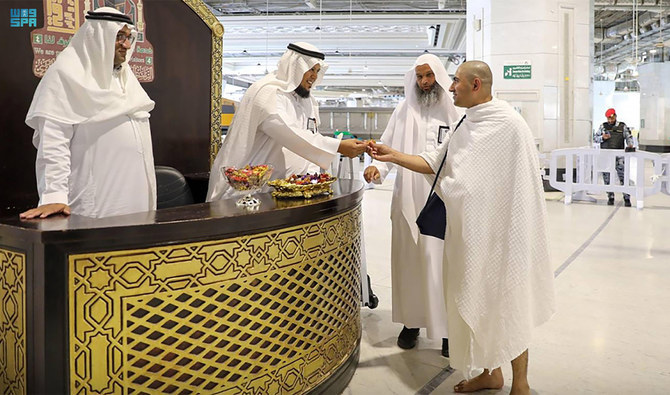ISLAMABAD: The first direct Hajj flight from Pakistan's Islamabad to Saudi Arabia’s Makkah province safely landed at the Jeddah airport on Monday morning with 340 Pakistani pilgrims aboard, the Pakistani religious affairs ministry said, as Pakistan's pre-Hajj flight operation continues in full swing.
This year, Saudi Arabia reinstated Pakistan’s pre-pandemic Hajj quota of 179,210 pilgrims and scrapped the upper age limit of 65 in January. About 80,000 Pakistani pilgrims are expected to perform the pilgrimage under the government scheme this year, and the rest will be facilitated by private tour operators.
These Pakistani pilgrims arrived under the Makkah Route initiative, which allows them to go through immigration facilities at the airports of their respective countries, and as part of the Pakistani government scheme via Saudi Arabian Airline flight, SV-3727.
"Pakistani Hajj pilgrims were warmly welcomed upon arrival at the Jeddah airport," a spokesperson for the Pakistani religious affairs ministry said.
"The pilgrims coming from Islamabad under the Makkah Route initiative were sent to [the holy city of] Makkah via eight buses."
Two more flights will leave for Saudi Arabia from Islamabad and Multan, the spokesperson said, adding 1,050 Pakistani pilgrims will be reaching the Kingdom on Monday.
Hajj is an obligatory religious ritual for adult Muslims who are physically and financially capable of carrying it out. It involves visiting the holy cities of Makkah and Madinah at least once in a lifetime and takes place during the last month of the lunar Islamic calendar called Dhu Al-Hijjah.
On Tuesday, 3,387 Pakistani Hajj pilgrims will arrive in the Kingdom via 11 flights, according to the religious affairs ministry.
More than 40,000 Pakistanis have so far arrived in Saudi Arabia to perform the annual pilgrimage since the government initiated a special flight operation on May 21. Pakistan last week also started direct Hajj flights from the southwestern city of Quetta, the Pakistani Civil Aviation Authority (PCAA) said, in a first for the residents of the country’s Balochistan province.
Balochistan, a mountainous desert region bordering Afghanistan and Iran, is Pakistan’s largest but most under-developed province, where pilgrims previously had to travel to the country’s commercial hub of Karachi in the south for direct Hajj flights.
Pakistan's pre-Hajj flight operation will continue until June 21.



















